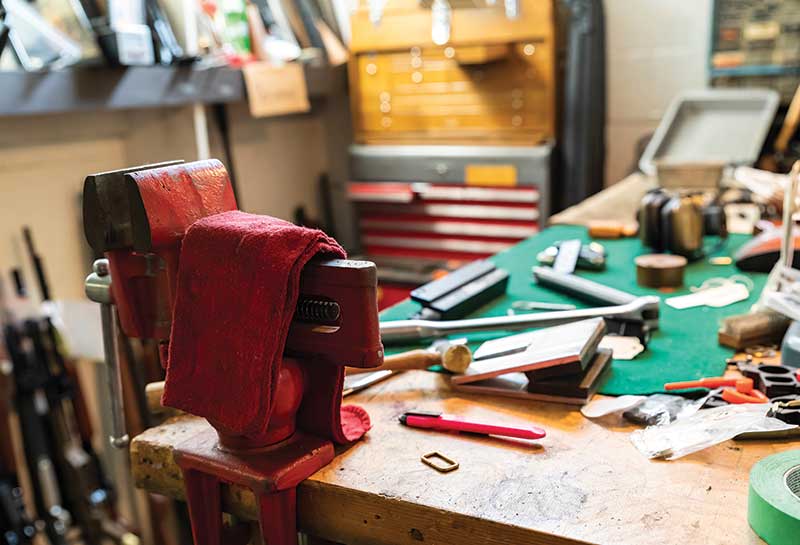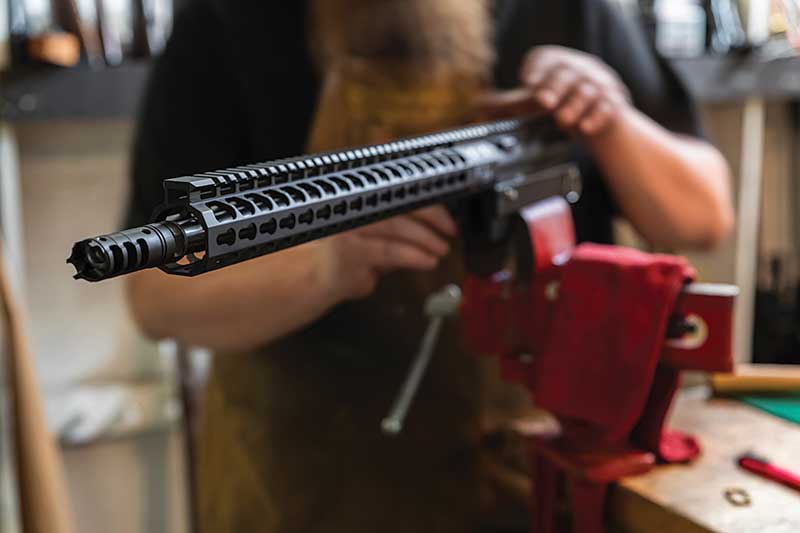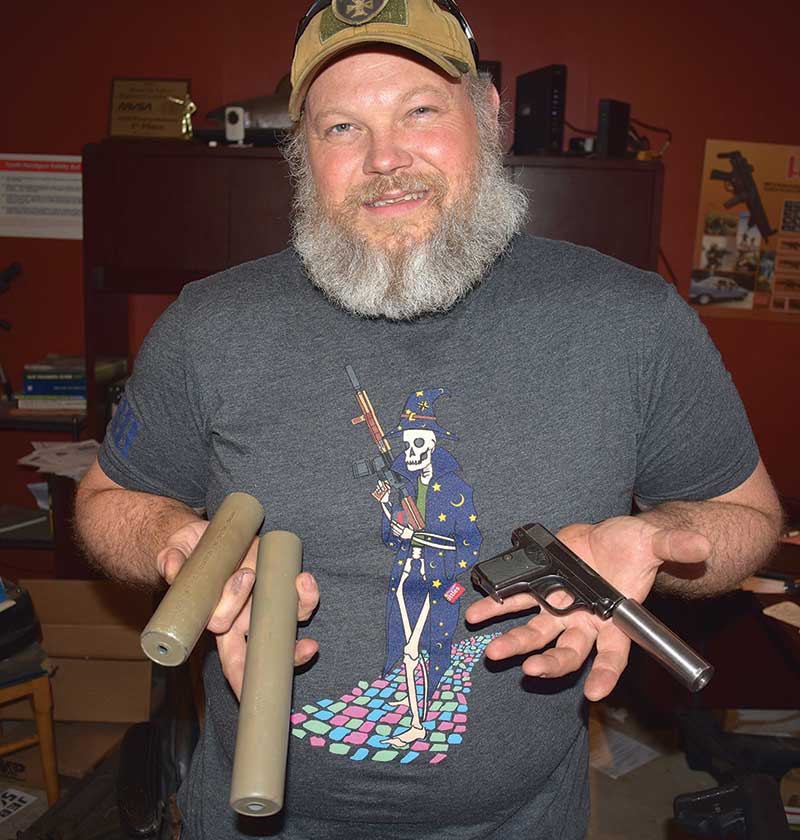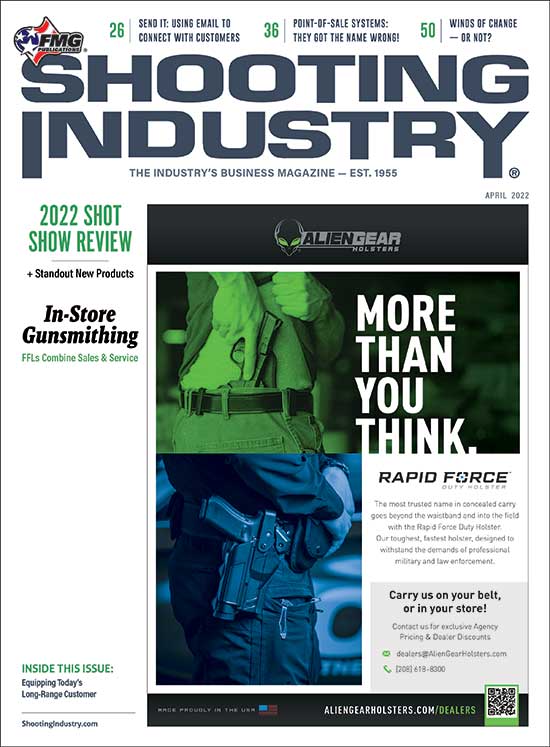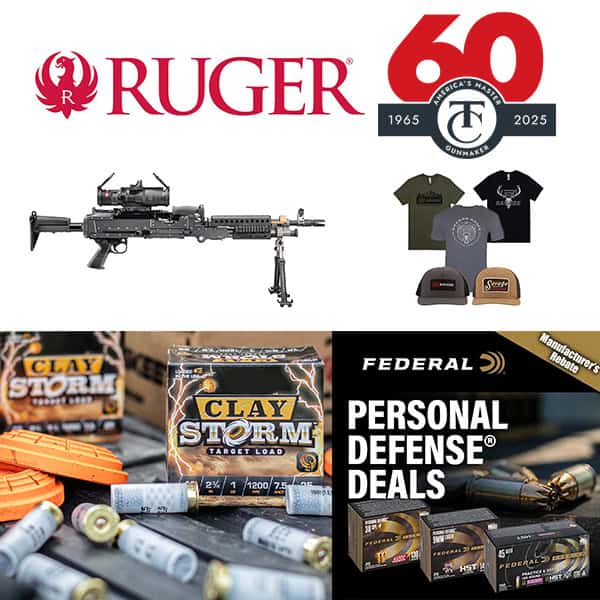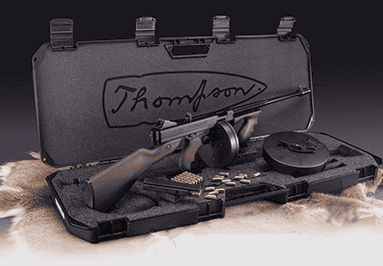Gunsmithing: Joining
Sales & Service
Despite Specialized Niche, FFL Gunsmiths
Thrive On Reputation, Relationships
At least 12 gun shops are clustered in Denver’s western suburbs. In such a competitive environment, gun-shop owners scrap to claim a share of a mercurial market.
Mike Rickert, co-owner of Hammer Down Firearms, said his business flourishes from a combination of services — including gunsmithing and transferring firearms customers buy and sell through online auction sites.
“Because we have a good saturation of gun stores close by in the western suburbs of Denver, nobody has an angle on products nobody else can get,” Rickert observed. “It’s difficult to put space between us and the products we offer. We’re a small store, so we have to capitalize on the reputation we’ve built through good customer service.”
Many FFL holders refuse to facilitate online transactions. Besides being a steady income source, Rickert says brokering such deals builds his customer base and fosters customer loyalty.
“Gunsmithing will always bring people through the door. Ours is pretty pedestrian: disassemblies, cleanings, oilings and assemblies (DCOA). Those are the bread-and-butter of most gunsmithing.”
Mike Rickert, Co-Owner Hammer Down Firearms
“A lot of gun stores don’t handle transfers at all,” Rickert said. “Their attitude is, ‘If you’re not going to buy it from us, we don’t want anything to do with you.’ That’s fine with me: It brings us more business. We’d rather have them buy guns from us, but a lot of the people who come in here for transfers wouldn’t ordinarily be here anyway. It gives them exposure to our business, and we’re glad to have them in here.”
Employing a resident gunsmith is an important part of Hammer Down’s business. Most of the work is mundane and not particularly lucrative, but even the smallest, most inconsequential jobs are important to the customers. Meeting these needs, again, potentially grows the clientele and fosters loyalty.
“We don’t make a lot of money gunsmithing, but gunsmithing will always bring people through the door,” Rickert claimed. “Ours is pretty pedestrian: disassemblies, cleanings, oilings and assemblies (DCOA). Those are the bread-and-butter of most gunsmithing, and sight swaps second. We do straight-up repairs for guns that aren’t operating or making light primer strikes. Somebody has taken a gun apart, and they realize they don’t have the skill to put it back together.”
Access to a competent gunsmith is increasingly difficult because so many master gunsmiths have died or retired, Rickert noted. Talented young gunsmiths replace them, but it takes years to replace what is best described as institutional knowledge.
“A guy passes away with 40 years of experience; if you replace him with somebody who has 10 years’ experience — it shows,” Rickert said. “They say it takes 10,000 hours to achieve mastery. There’s no shortcut. It’s important for people to understand there aren’t nearly as many gunsmiths in the country as there was 20 years ago. A lot of stores have pushed away from it.”
Tying these elements together is an inclusive environment that consummates a pleasant consumer experience, Rickert added.
“I don’t suffer well stores where you have to be a certain type of ‘tacti-cool’ for them to give you the time of day,” he said. “We’re a traditional gun store. We treat everybody equally coming in door. This isn’t a virtue-signaling statement. It’s how we do business.”
Regardless of one’s perception of wearing masks during the pandemic, Rickert asserted masks are not welcome inside his shop.
“The only bad reviews we’ve gotten in the last couple of years were from people who don’t like our mask policy — which is no masks,” he said. “We’re a gun store. There’s no place for a mask in a gun store.”
“I Have This Old Gun”
In addition to handling firearms and ammunition transfers, a unique shop in Bloomfield, N.Y., goes several levels above basic gunsmith services. Turnbull Restoration Co. specializes in restoring classic, rare and collectible firearms.
Steve Lester, general manager for Turnbull Restoration, has been in the business for 35 years. He shared the shop focuses on firearms produced from 1870–1940.
“We specialize in accurate recreations of historical firearms and metal finishes, restoring to the letter what it was 100 years ago,” Lester provided. “We restore markings, and we recreated roll dies for them. We do the traditional finishes, including rust bluing. We’re best known for color case-hardening using the bone charcoal method. We do around 250 to 300 full restorations a year.”
Turnbull has 16 employees, and all have been with the company for 10–20 years.
“We have a great group of craftsmen,” Lester said. “They’re not really gunsmiths anymore. They’re artists.”
Turnbull’s niche extends to the nature of the transfers it handles. Buyers knowledgeable in historical pieces often buy them online. Turnbull handles the transfers and then restores the firearms to their original condition. Lester not only facilitates transfers, but also acts as a consultant.
For example, a customer finds several options at online gun auction sites and asks Lester to help decide which one to buy.
“They’ll say, ‘Hey Steve, I’ve got three listings I’m looking at. Can you look at them on your computer?’ One has a refinished stock.
One has a crummy bore. I’ll probably suggest the middle option to get us to the desired result of getting to a restored firearm for the least amount of cost,” he stated.
“I’m not a straight up, open-door shop, but I have an extreme amount of repeat business for both gunsmithing and silencer work. I have very good relationships with our customers.”
Jeb Burnett, Founder & Owner Armtac
A second branch of the business, according to Lester, is restoring modern incarnations of classic models to their classic configurations.
“We’ll take a new Winchester 92, get rid of the tang safety and make it function and look like an early-1900s restored rifle,” he explained.
A full restoration starts at about $4,800. Firearms are stored in a large vault, and they move through a queue in a clockwise fashion until they reach a workbench. A restoration takes an average of 50 hours, or about three months, but it might be out of the owner’s possession for a year. Time out of an owner’s hands is a bigger barrier than cost.
“I prefer to keep it under a year, but it has gotten little longer during the pandemic, and people understand that,” Lester shared. “Our demographic is retired, 55 and older. Who knows if you’re going to be alive in 12 months?”
The cost of the restoration often exceeds the value of the restored product, but Lester noted many of his clients do it for the love of the firearms.
“It might be a $200 shotgun today, and it will be a $1,000 shotgun at most when we restore it,” Lester said. “It’ll cost $4,000 to $5,000 range to get us there.”
Ammunition transfers represent a growth area in Turnbull’s business.
“I used to do basically no ammo transfers to doing a bunch,” he observed. “Firearm transfers have picked up a tiny bit, but ammo is the biggest increase. In New York, ammo has to go through an FFL.”
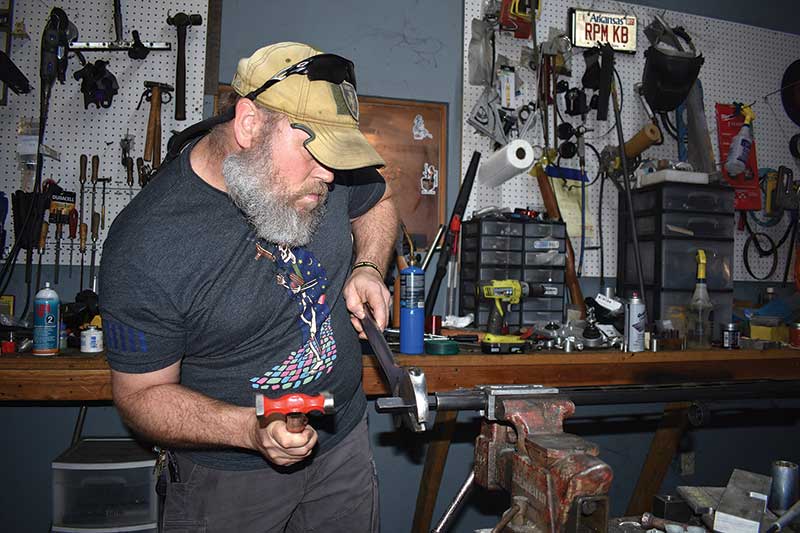
Jeb Burnett of Armtac specializes in custom-built suppressors from .22 LR to .50-caliber
BMG. He’s also a 30-year gunsmith, offering services for hunters and those wishing to
restore firearms. Customer service is key to his longevity: “One reason I have a lot of
repeat business is if something’s not right, they know how to get in touch with me.”
(Photos: Bryan Hendricks)
Silence Is Golden
Jeb Burnett, founder and owner of Armtac in Roland, Ark., specializes in retail and custom-built suppressors, but he has been a working gunsmith for 30 years.
“Our main business is manufacturing firearm sound suppressors, from .22 LR to .50-caliber BMG, but our gunsmithing services offer anything you need done,” he said. “We offer cleaning services for hunting guns and restoration services for older firearms. We do Cerakoting, threading shotgun barrels for screw-in chokes and threading rifle barrels for brakes and other muzzle attachments. We do anything suppressor related.”
One unique project was building a .458-cal. smokeless powder muzzleloading rifle for Cliff Lee, a former Major League pitcher who lives nearby in Little Rock.
“It’s built on a Remington 700 action and throws a 350-grain bullet 2,800 fps,” Burnett stated.
Like many FFL holders who don’t have traditional storefronts, Burnett gladly facilitates transfers for online purchases. He charges $30 for ordinary transfers and $100 to transfer NFA items.
“I probably transfer three or four guns a week,” Burnett said. “It’s kind of a mix of people I know. I’m real discriminating on who I let into my shop. I’m not a straight-up, open-door shop, but I have an extreme amount of repeat business for both gunsmithing and silencer work. I have very good relationships with our customers. One reason I have lot of repeat business is because if something’s not right, they know how to get in touch with me. We take care of our customers.”
Gun enthusiasts, hunters and shooters comprise one of the most diverse and idiosyncratic consumer groups in the marketplace. Gun shops reflect these differences, and the profitable ones build their customer bases organically, the old-fashioned way — by establishing relationships, competence and reliability.

